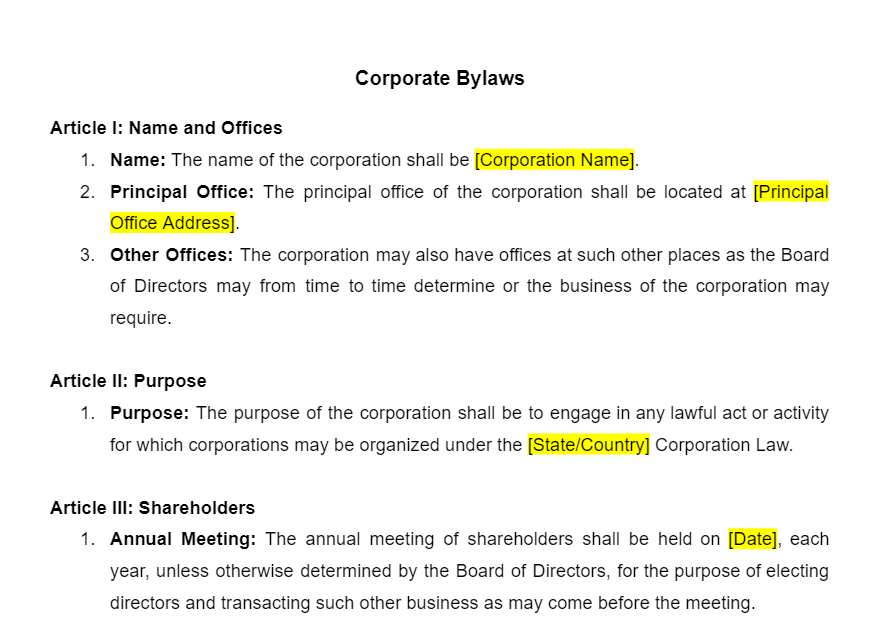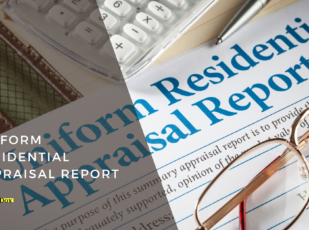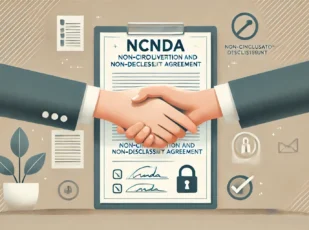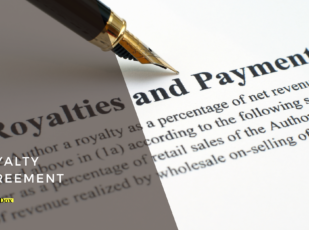
Corporate Bylaws Template
9 Downloads
Tax
December 13, 2024
Sayantani Dutta
A solid legal framework for a corporation’s governance and operations from its inception is critical. The corporate bylaws document is that legal framework—and as such, it is a vital tool that details the rules and procedures by which the corporation will be governed. It includes a number of articles of incorporation as well as a bunch of other information, such as the scope of amendments and the responsibilities of the board of directors, to help guide the corporation toward the right path.
Today, we are going to talk about the importance of Corporate Bylaws and the risks of operating without a comprehensive one. We will also introduce the solution to the problem with FreshDox.com’s very own, meticulously crafted Corporate Bylaws Template that can form the cornerstone of setting up formal, well-structured corporate governance.
So, without further ado, let’s dive right into it!
What are the Corporate Bylaws?
A Corporate Bylaws document outlines the internal rules, structure, procedures, and more for managing a corporation. It covers various aspects of corporate governance, such as the structure of the board of directors, the process for holding meetings (everything from the annual meeting to any provision for a special meeting), shareholder rights, the roles and responsibilities of all the officers and the members of the board, and so on.
Having a robust, legally sound foundation is critical to ensure that all corporate affairs are conducted in an orderly and efficient manner. The Corporate Bylaws ensure that. Also, keep in mind that every corporation is different (even from its closest competitor within the same industry). As such, it is also critical to understand that each Corporate Bylaws document is different, reflecting the particular corporation’s unique needs and compliance requirements.
These bylaws permeate all layers—right from the officers who have numerous day-to-day responsibilities and any enforcing departments to the chief executive officer, CFO, the chairman of the board, or the vice president. All of these stipulations and procedures can only carry the corporate seal of approval when they are mentioned in the bylaws. Once done, not even the directors of the corporation can go against them (at least, not without repercussions).
Whether it is a nonprofit or a for-profit organization, there are many similarities between companies’ structures when it comes to governing them. For example, how will the notice of meetings be communicated or how much do the officers of the corporation own in terms of voting rights? A Corporate Bylaws document, therefore, is extremely important across the board for all types of organizations, regardless of the nature of their business and size.
The Importance of Corporate Bylaws
Corporate Bylaws are fundamental to the successful operation of a corporation. At their core, these bylaws offer a clear governance structure to eliminate any scope of ambiguities, misalignment as to the objectives of the organization, and confusion that can lead to internal conflicts or legal disputes down the line.
A clear governance structure is the starting point—because only on top of this can you have internal organization, decision-making, conflict resolution procedures, and everything else. As such, it is clear that the bylaws are critical in establishing the rights and obligations of the directors, officers, and shareholders.
The aim? To align the interests of all parties involved in the internal workings of the corporation. Only a comprehensive Corporate Bylaws document can accomplish all this. And for comprehensiveness, these documents need to carry conditions and procedures for everything from how to deal with vacancies among the number of directors, how to approach indemnification for the shareholders, and the place of meetings for both, special and regular meetings, all the way up to the number of shares and how they are to be divided.
It is an operating agreement that sets certain rules in place to keep the internal structure of a corporation well-organized and legally protected from vulnerabilities.
Company bylaws are a critical legal document in another way as well. They can be presented to banks, investors, and potential partners, such as other businesses or vendors, to demonstrate the company’s commitment to structured governance and operational integrity. It evokes trust when you know that a company has a solid internal structure and procedures outlined in the very bylaws.
What’s more, having well-defined bylaws in place is also a legal requirement in many jurisdictions for proper corporate administration. What this means is that in many regions, you cannot start a corporation or conduct business through that corporation if there are no bylaws in place.
What if There are No Corporate Bylaws?
Operating without well-drafted Corporate Bylaws, or relying on a generic template, often leads to significant governance challenges—not to mention legal risks as well. This is mainly because without specific guidelines to nudge the internal structure in the right direction, corporations will not know how to face inefficiencies and conflicts in the decision-making process. This, in turn, can potentially hamper their ability to respond swiftly to business opportunities or external threats.
Another serious concern is when a corporation relies on inadequately written bylaws. These are often ambiguous, and ambiguous bylaws are highly likely to result in disputes among shareholders, directors, and officers. This undermines the corporation’s stability and growth. For example, suppose the corporation does not know how to protect an indemnified member of the board against personal loss, how to peacefully end someone’s term of office, or how to tackle a conflict of interest by a part of the internal structure of the corporation. In that case, this can cause bigger, more complex issues over time. Before you know it, seemingly minor situations have snowballed into massive problems posing an existential risk to the corporation’s bottom line and its performance.
Furthermore, in the absence of clearly defined bylaws, corporations are also risking non-compliance with state laws and regulations—which can attract severe penalties, legal challenges down the line, and, of course, potential damage to the corporation’s reputation that will hamper its ability to conduct further business in the market or industry.
It is not rare for a meeting of the board of directors to determine that they are going to rely on free corporate bylaws downloaded from the Internet. What could go wrong, is what they think. All such a template has to do is tell them that you can customize it a little bit and voila, no more work needed.
Well, it is a grave mistake to rely on these documents. Even if they might work in one jurisdiction, they might not work in another. Also, oftentimes, they have gaps in many of the clauses and lack the comprehensiveness required to cover all bases, legally and professionally. This leads to gross negligence of critical aspects of the organizational structure often culminating in serious risks in the future.
The Key Elements in a Corporate Bylaws Document
Hopefully, now you understand the importance of comprehensiveness and covering all bases in a Corporate Bylaws document. Moving on, it is time to discuss the key ingredients that these bylaws must have. Do keep in mind that depending on the nature of your business and your corporation’s unique internal structure, you will need to add, remove, and edit many clauses. The following pointers are only meant to offer guidance as to what is commonly included in a Corporate Bylaws document.
- Corporate Structure: The Corporate Bylaws, on behalf of the corporation, provide a written notice to everyone who forms a part of the internal structure of the company. From the name of the corporation, its registered agent, and the definition of the corporation’s structure to the roles and powers of the board of directors and officers—it covers everything in detail.
- Board Meetings: The bylaws also include provisions for convening, conducting, and documenting board meetings, organizational meetings, special meetings of the board, special meetings of the shareholders, and general-purpose shareholder meetings. They will also cover conditions about reasonable time, provision of remote communication, and the conveyance of the resolution of the board (after a meeting) to all interested parties.
- Shareholder Rights: A Corporate Bylaws document also covers provisions for detailing shareholder rights. Different shareholders in an organization have different rights and levels of power. For example, the majority of the directors wield the most power, and minority shareholders have a comparatively smaller say in fundamental matters such as diversification into new avenues. All of this needs to be clarified and confirmed with written consent. What decisions require a majority vote, which ones need a unanimous decision, and which ones need confirmation from all parties involved—all this needs to be clarified. Within this clause, the bylaws will also cover the process of transferring shares from one party to another.
- Committees: Corporations need committees to work smoothly. Different committees handle different tasks for the efficient and smooth functioning of the business. As such, the Corporate Bylaws are also responsible for outlining the guidelines for the establishment, function, and dissolution of committees within the board of directors or shareholders.
- Fiscal Policies: The Corporate Bylaws also include policies, clauses, and conditions surrounding the corporation’s fiscal year, financial reporting, and audit procedures. Having these policies is critical for legal and accounting reasons.
- Amendments: Put simply, a clause for amendments within the bylaws ensures that the procedures for amending the bylaws themselves are clearly defined. As a corporation evolves, its bylaws inevitably need to be changed. So, it should be made clear as to what constitutes sufficient reason for amending the bylaws, who can amend it, and if there are any limitations on the amendments that can be made (for example, amendments that unfairly incentivize a board member cannot be made), among other things.
- Miscellaneous Provisions: Apart from all of the above, these could be additional conditions, procedures, stipulations, or organizational priorities that also require solid backing. Add any such additional provisions unique to the corporation’s needs here—including, but not limited to, conflict of interest policies and clauses regarding the indemnification of directors and officers.
With all this, your Corporate Bylaws will be legally sound and pave the way for the professional, efficient working of the internal structure. Ultimately, the goal is to offer a clear, legal, and efficient governance framework—so add any clauses that you find important as per your organization’s unique requirements.
FreshDox.com’s Corporate Bylaws Template
Corporate governance can be tricky to manage and properly control. Add to that the importance of ensuring compliance with legal requirements, and you have a pretty difficult task to tackle. We understand that—that is why here at FreshDox.com, we offer a professionally designed Corporate Bylaws Template that is a cut above the rest (specifically, the free, inadequate templates you will find online). Our template is available in both Word and PDF formats and is drafted after multiple rounds of legal advice.
This template acts as a solid foundation for your corporation’s governance structure. As such, it ensures that every aspect of corporate administration is covered comprehensively and clearly without any scope of ambiguities.
Subscribing to FreshDox.com grants access to our extensive library of legal document templates, including the Corporate Bylaws Template. We even have the provision of a 14-day trial that allows you to explore the benefits of our membership plans—Basic and Premium. Basic Members can customize and download up to three legal document templates per month, while Premium Members enjoy unlimited access to our vast catalog of business, legal, and professional document formats.
Everyone from new corporations and legal professionals to large multinational enterprises and business consultants uses our templates to ensure comprehensiveness and legal soundness. It is time you joined us too! With FreshDox.com’s Corporate Bylaws Template, you can make sure that your corporation is positioned for success with a robust governance structure.
So, stop waiting! Avoid the pitfalls of vague governance and legal non-compliance by signing up for FreshDox.com today. Establish your corporation’s legal framework with confidence using our expertly crafted Corporate Bylaws Template.
Related Templates
Discover more templates that align with your needs and preferences.

Ready to Sign Up?
Sign up for FreshDox.com’s 7-day trial and discover why so many individuals and businesses trust us for their legal document template needs.
- Cancel any time
- 7-day free trial
- From 300+ Customer Reviews
















